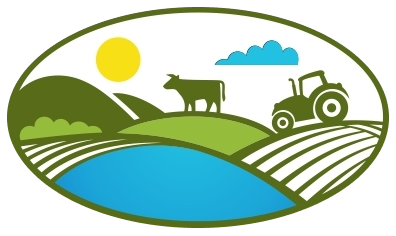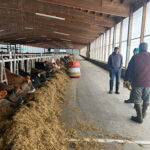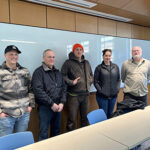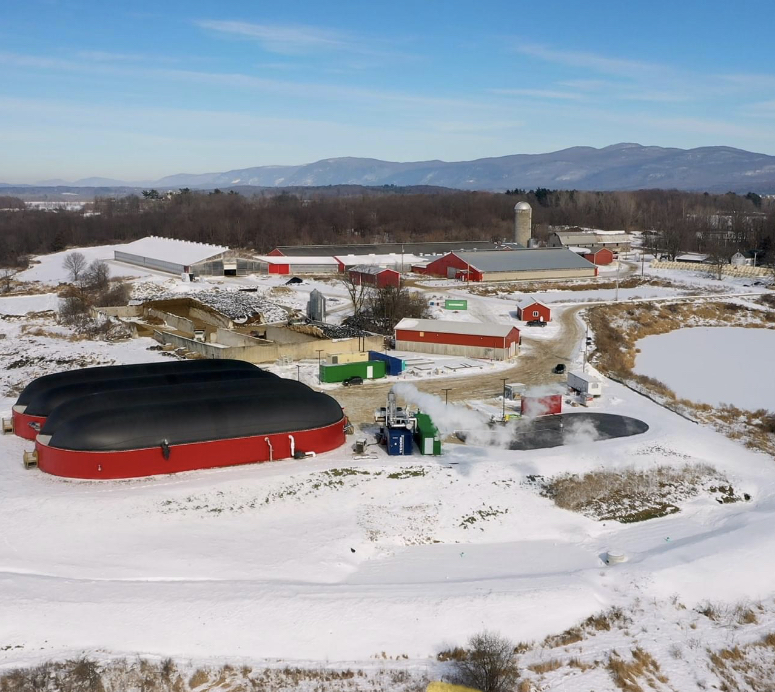
Goodrich Family Farm has been a member of the Champlain Valley Farmer Coalition since 2014. Chase Goodrich has served on the Board of Directors for three years and was recently elected to a second term.
When we visited with Chase Goodrich of Goodrich Family Farm in Spring 2021, they were in the midst of activities one might typically see this time of year on a Vermont farm. Some field work. Some drainage work. Some no-till grass seeding in a few of their under-producing fields.
There’s one activity, though, we’re not accustomed to seeing in Vermont.
Chase explains, “We’re working on the final preparations here to get the digester up and producing gas on the line.”
Come again?
Chase is referring to the farm’s brand new, state-of-the-art anaerobic digester. There are already more than a dozen farms in Vermont whose anaerobic digesters convert manure and food scraps into electricity for the grid. What sets the Goodrich Family Farm’s digester apart from the rest is that it’s the first to produce renewable natural gas for heating and cooking. Much of the gas will travel via Vermont Gas’ pipeline system to the main power plant at nearby Middlebury College.
This cutting-edge technology is a far cry from the farm’s humble beginnings. Sitting atop the ledges of the Otter Creek and its flood plains, the farm was founded in 1956 by Chase’s grandfather, Wilbur Goodrich. Back then, the farm featured a tie stall barn with twenty holsteins.
The farm is now in its third generation and has grown to milking 800 cows, with 120 dry and 700 up-and-comers. To feed that many mouths, the Goodrich Family crops 700 acres of corn and 1800 acres of hay.
Chase owns the farm in partnership with his father, Ernie, and sister, Danielle. While Chase feeds the cows, handles the accounting and book work, and oversees the crops, Danielle is focused on herd health and management of the milking parlour. Ernie lends a hand wherever he can, especially with feeding cows and planting corn. Danielle’s husband, Jason, is responsible for the heifers, crop work, and the farm’s maple sugar operation. The family sells their milk to Agri-Mark.
When Chase and Danielle returned home to the family farm back in 2009, it was a bad year economically for the dairy industry and there was increased scrutiny of agriculture’s impact on water quality. The siblings were mulling their long-term strategies to ensure the farm’s economic and environmental viability when Middlebury College and a developer approached them. They wanted to see if the College–whose goal at the time was to achieve carbon neutrality by 2016–and the farm could collaborate on a project to help one another achieve their aspirations. Could the farm install a digester to produce energy for the College?
We already know how this story ends, but it’s worth acknowledging that the plot line is a decade. Why the long trajectory?
First, the key players–a farm, an educational institution, an energy company (Vanguard Renewables), and a group of entrepreneurs–needed to create a project in support of a common vision that enables each of them to achieve their own unique goals.
Then there was the permitting. “It’s complicated,” Chase adds with a laugh.
At last, there was financing and constructing the final product. The pandemic, of course, is prolonging this aspect. Right now, they are flaring off gas and working to install the compressor, which will scrub the gas into pipeline quality so it can be injected into Vermont Gas’ distribution network. Chase estimates that the project will be fully operational in another month.
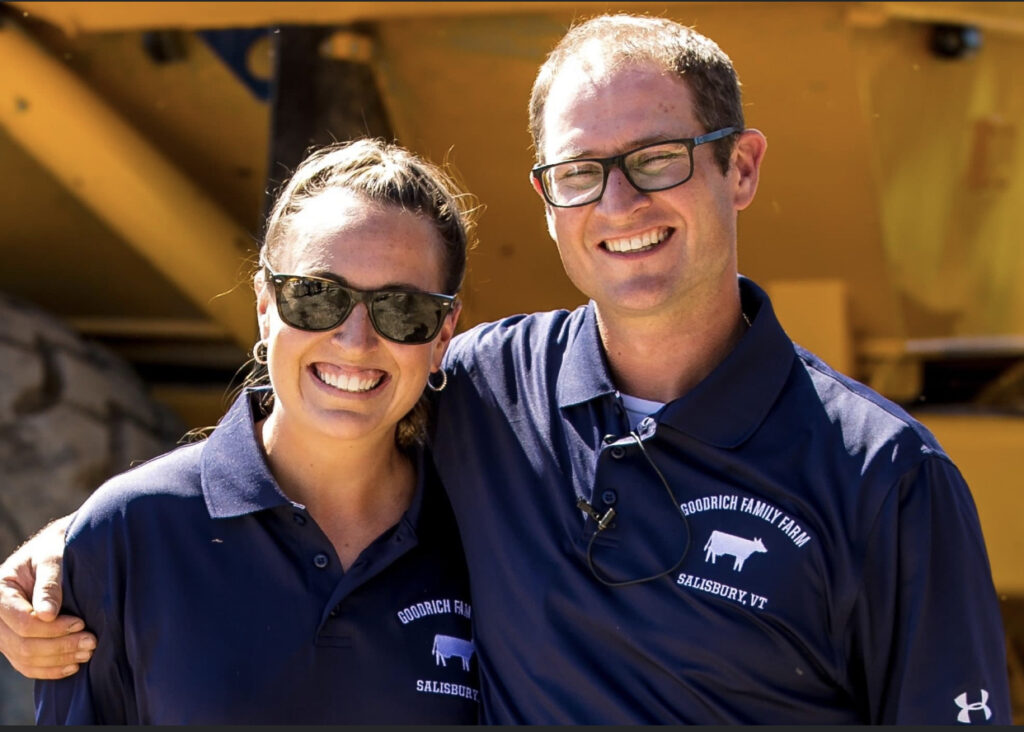
Although this decade-long dream will soon come to fruition, the Goodriches are not resting on their laurels. They continue to look to the future and what more they can do to protect water quality.
“Technology is always changing and improving,” Chase says. “We’re trying our best to stay on top of that and being informed about proper practice.”
This year they are implementing a row shut-off GPS system on their no-till corn planter. At corners and edges of fields, the system will shut off individual rows to ensure a uniform planted field. This not only prevents double planting, but also double application of fertilizer in certain areas. The Goodriches also plan to continue experimenting with their use of draglining and manure injection.
This constant state of experimenting, adapting, and improving speaks to why the Goodrich Family Farm decided to join the Champlain Valley Farmer Coalition seven years ago.
Chase explains, “There’s a lot on the line with what we do on the fields. Farmers want to do what works to support our businesses and our animals. The Farmer Coalition was a great way to overcome those hurdles and gain the confidence to implement new practices.”
Part of the appeal for Chase and his family was the opportunity to connect with other farmers and gain their perspectives. With many more years of experience under his own belt, Chase has advice to offer, too.
“Everybody’s situation is going to be different, farm-to-farm. Don’t be afraid to ask questions and talk to other farmers. Do your homework. Do your research. Don’t be afraid to try new things and see what works.”
To learn more about the Goodrich Family Farm’s anaerobic digester, check out Vanguard Renewables’ overview of the project.
